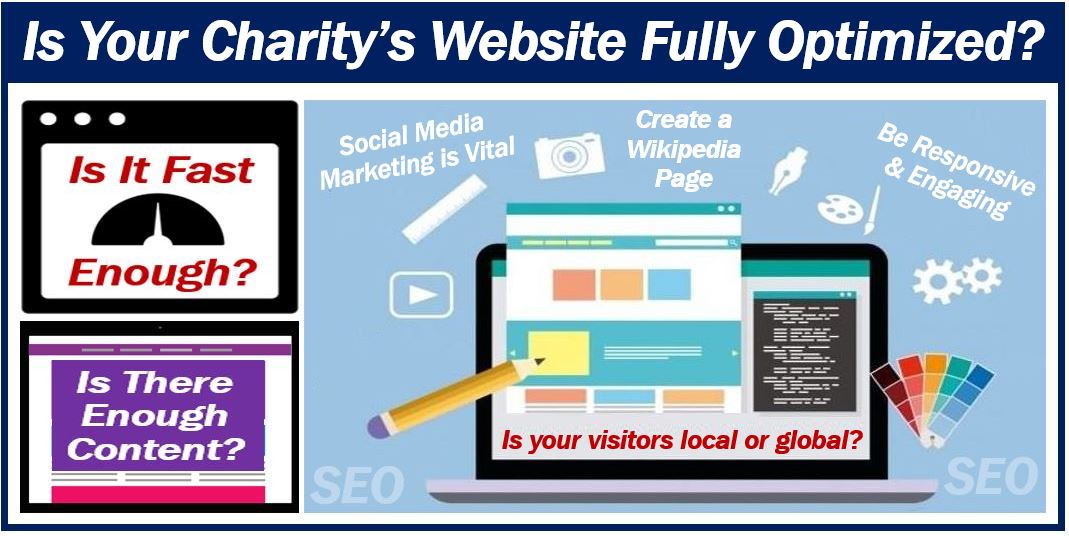For those of us fortunate enough to have total financial freedom, there are still no guarantees of happiness. Whether you’re self-made or have won your fortune with a Euromillions lotto win, the wealthy are often no happier than the poor. Although it’s true that money can provide more opportunities that may help lead to happiness, ultimately whether or not you find happiness is up to you.
A lot of people have found a deep sense of fulfilment and purpose by starting their own charity. This is not for the faint of heart, but the rewards can be well worth the time, money and effort.
We’ve compiled a list of steps that may help you get your charity off the ground. It could be your most important legacy.
Decide on the purpose of your charity
Passion is a great place to start. Do you have an urge to promote animal welfare, help the elderly or preserve the environment? If you can find a cause that stokes a fire within, you’ve taken a major step. Starting with an idea you’re passionate about is going to drive the project and will help maintain your interest in the long term.
Develop a mission
Your charity’s mission should be at the core of every decision; it should guide the charity and make sure it stays on track. It should give purpose, direction and define success.
It’s important that your mission is realistic, achievable and sustainable. If not, the charity could be seen as a disappointing failure, even if it does manage to achieve some great outcomes.

Establish if there is a demand
Just because you’re passionate about a particular idea, it doesn’t necessarily mean that there is a need for it. If your niche is already well served by existing charities, you may need to re-evaluate; too much competition amongst charities may result in less favourable outcomes for the niches they intend to serve. You may need to tweak or completely change your idea, depending on what’s already on offer from other charities.
Conduct a feasibility study
Next you should determine whether or not your idea is feasible. It’s too late once you build a charity only to discover it was never viable to begin with. A feasibility study can be an intensive and expensive exercise, but ultimately, as with any business, they’re a necessary part of the process.

If you proceed to create a charity without first determining its viability, it could be a very short lived venture. Make sure to take the Covid-19 pandemic into consideration; nobody knows what the future holds but it’s best to be well prepared.
Create a name
Charities usually rely on donations and goodwill to carry out their mission, so it’s a good idea to try and come up with a name that makes it obvious to potential donors what you’re all about. This way, people know from the start if it’s a charity that they’d likely be interested in helping. For example, names like, ‘Help the Homeless’ or ‘The Animal Welfare Centre’ are clear, succinct names that remove any possible ambiguity about what it is your charity actually does.
Determine the legal and regulatory requirements
Depending on the jurisdiction in which the charity will operate, there will be different legal obligations that you must meet, and you must be well versed in these. Assuming you intend to operate as a non-profit and tax-exempt organization, you’ll want to make sure your charity is set up to the letter of the law. Seeking professional legal and accounting advice would be a very prudent move here, as getting it wrong could be costly in terms of time and money.
Register your charity
Once you’ve gathered all the required advice you need to start a charity, you can register it with your chosen name. This is the first concrete step to making your charity a reality; up until now it’s all been research and planning. This step is non-negotiable; if your charity isn’t registered, you probably won’t be running a legal venture and the consequences of that could be severe. Ultimately, the niche your charity hoped to help will be what loses out if you fail to register.
Fundraising
A charity is a business and should be run as such. Like a for-profit business, funds will be required. In some cases, lots of funds. Do you plan to float the required initial capital yourself? Or do you plan to raise funds to get it started? Perhaps you plan to do a bit of both. In any case, you’ll need to know where the money will come from and how best to extract maximum value from it.
Get a team
You won’t be able to run a successful charity by yourself, so surround yourself with a team of people who completely buy into your charity’s mission. Finding the right staff can be a battle, but if you can find people who genuinely care about the work they’re doing, you’re half-way there. People who have experience with charity work is a definite plus, especially if you have no charity experience yourself. We recommend getting at least a few seasoned pros on board to maximise your chance of success.
Find a mentor
You’ll have an awful lot to learn when starting a charity from scratch. Try and connect with an experienced charity administrator, and learn all you can from them. It’s likely they’ll be happy to help, after all, their background is in helping others. If you can avoid the mistakes they made and pick up opportunities they missed, you’ll be a lot closer to reaching your goals.
Find and advertise a point of difference
With more than 1.5 million registered charities in the USA alone, standing out from the crowd has never been more important. With that many organisations competing for limited funding, you may increase your chances of success by offering something a little different to existing charities. If you can find a way to promote yourself as unique amongst the hordes of other charities, you just might make it easier for yours to be noticed.
Build a website and open social media accounts
These are more non-negotiables. No businesses in this day and age operate without at least a website or social media accounts, and most have both. It’s important that you’re responsive and engaging, and don’t leave queries, comments or critiques unanswered. To this end, it’s likely you’ll need an employee to monitor and reply to messages.

You may also wish to consider someone whose job it is to improve your visibility in search engines. This can improve your charity’s bottom line; the more people who know about your charity, the more donations it’s likely to receive. Creating a Wikipedia page is also recommended, and is great way to give your charity credibility.
Launch
Now you’re ready to go! A launch event can be an effective way to make yourself known, and with the advent of social media, it’s never been easier to get your name out there.
Starting a charity can be an arduous process, but the sense of fulfilment they can bring may far outweigh the short-term pain. Once a charity up and running, it doesn’t get much easier, but knowing your ideas and passion are bringing ongoing benefits to the community makes it all worthwhile.
Interesting related article: “What is a For-Profit Organization?“

